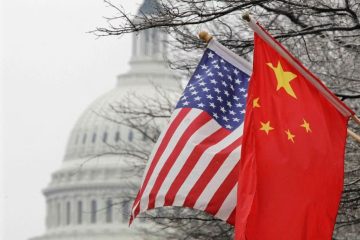Business Technology Is Finally Having Its Moment, Thanks to AI

Unlike earlier tech booms that promoted the formation of large tech companies that catered to the consumer market, the generative AI boom represents a period of digital innovation that is well suited for transforming the commercial sector.
Speaking on Tuesday at the Wall Street Journal’s CIO Network Summit in Menlo Park, California, Hemant Taneja, managing director and CEO of venture-capital firm General Catalyst, said that the innovative era that peaked around 2007 used social media and app stores to help startups achieve scale in the consumer market.
Taneja said that things are different this time.
Since generative AI doesn’t produce a user base, it is less suitable for rapidly growing large audiences. However, by dramatically increasing the productivity of both people and processes, it is perfectly suited for revolutionizing enormous businesses.
“Mobile was a huge distribution advantage when the social mobile cloud first emerged in 2007; you could go out and acquire customers, enabling them to take advantage of the global supply chain and build these full stack companies.” I don’t get any of it from AI. It’s a transformational advantage, in fact,” Taneja declared.
The majority of the value, he continued, “is in my opinion about how AI is transforming from both a vertical and a business function standpoint.” And the majority of our effort is focused on figuring out how to accomplish it. What part does AI play in sectors like healthcare? What part does artificial intelligence play in tasks like customer service and marketing?
Companies are still coming up with new methods to utilize generative AI in fields like software development and customer service, over a year after OpenAI ignited the revolution with the public release of ChatGPT. Additionally, they are transforming professions like sales and marketing with the help of technology.
Throughout the CIO event on Monday and Tuesday, speakers discussed how businesses across a variety of industries are using generative AI to revolutionize their business and operating models.
The chief information, digital, and data officer of Ally Financial, Sathish Muthukrishnan, said he created a generative AI tool that summarizes phone calls with customer support workers. Previously, this procedure required taking manual notes. According to Muthukrishnan, the company still has a human involved, but they approve the summary roughly 95% of the time.
CIO Fletcher Previn of Cisco stated that he uses the generative AI coding tool GitHub Copilot. About 19% of the time, according to Previn, when he first presented the tool, developers would accept the generated code; however, that percentage has been progressively rising ever since. Previn stated that although the acceptance rate is still below 50%, part of the reason for this is the developers’ distrust. He remarked, “It’s an evolution, and we’re still early.”
According to Previn, the business uses generative AI in the recruiting and hiring process as well. For example, it can be used by human resources to draft emails to job seekers. “Emails generated by AI have a higher response rate than emails from real people,” he claimed. “I believe it likely does a better job of tailoring it to the individual.”
Sesh Iyer, managing director and senior partner, co-chair of BCG X, the technology partnership arm of Boston Consulting Group, stated that he observes an emphasis on applications specific to particular industries, such as using generative AI to improve underwriting in the insurance business.
Dow, which specializes in materials science, is applying generative AI to roughly 20 areas, including materials safety, increasing margins, and determining whether novel materials can be copyrighted, according to Melanie Kalmar, chief information and chief digital officer.
According to Kalmar, conducting such research and hiring a different law firm used to take six or eight months, but the company’s new AI-based tool enables its scientists to complete such task on their own. “AI is a force multiplier for human potential,” says Previn of Cisco.Belle Lin made a contribution to this content.









